Cua Lo fishermen bring trash from their boats to shore to keep the sea clean.
Garbage is sorted right on the boat, then after each trip at sea, it is brought ashore by Cua Lo fishermen, significantly reducing the amount of plastic waste released into the marine environment.
Pioneer in "bringing trash to shore"
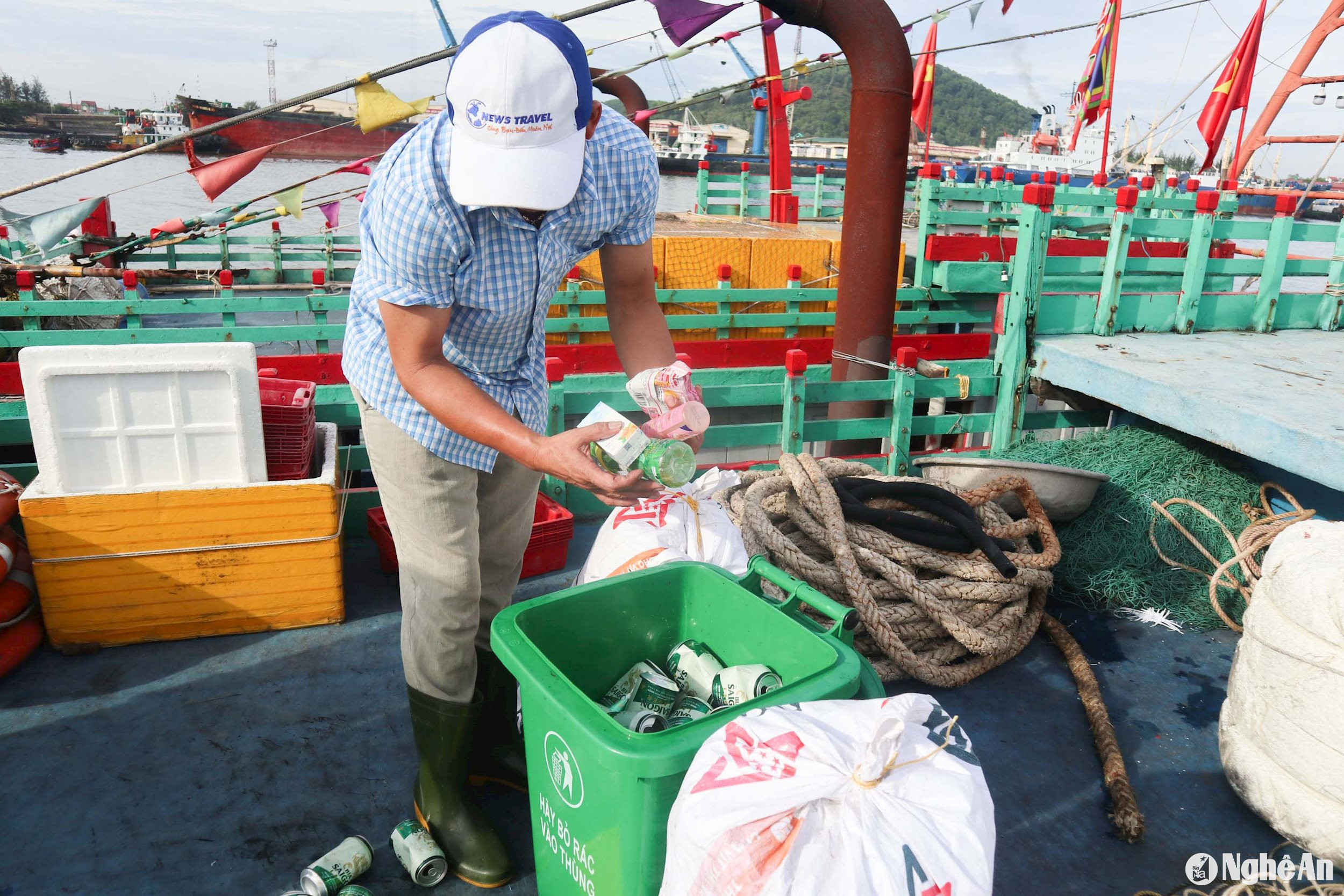
Mr. Phung Ba Thu, a veteran fisherman with over 30 years of experience at sea. For him, the sea not only provides shrimp and fish, feeding many people and generations of fishermen, but it is also his home, his homeland, and is closely connected to each fisherman.
“Following my father and brother to sea since I was 15 years old, I have been involved in this profession for more than 30 years. I spend more time at sea than at home. Therefore, the sea is not only a place to earn a living but also something close and intimate, like flesh and blood,” Thu shared.
.jpg)
On each trip out to sea, in addition to fishing gear, there are food and drinks: beer, soft drinks, candy, instant noodles, vegetables, fruits, etc. to serve as food and provisions during the days at sea. Bottles, cans, milk cartons, plastic bags, etc. are thrown into the sea after each use, carried away by the water. Organic waste can still decompose, but solid waste and plastic waste float far away, until big waves and strong winds push them together and wash them ashore.
“It’s all due to the habit of ‘throwing away wherever is convenient’, thinking that the ocean is so vast, throwing away bottles and plastic bags won’t cause any harm. Besides, the price of a can is only a few hundred dong, so throwing it away is not a pity. However, plastic waste does not decompose, gradually accumulating into a giant mountain of garbage in the ocean. During the rainy and stormy season, the sea is rough, the garbage is washed ashore by the waves, there are garbage streams that stretch for dozens of kilometers,” Mr. Phung Ba Thu shared.
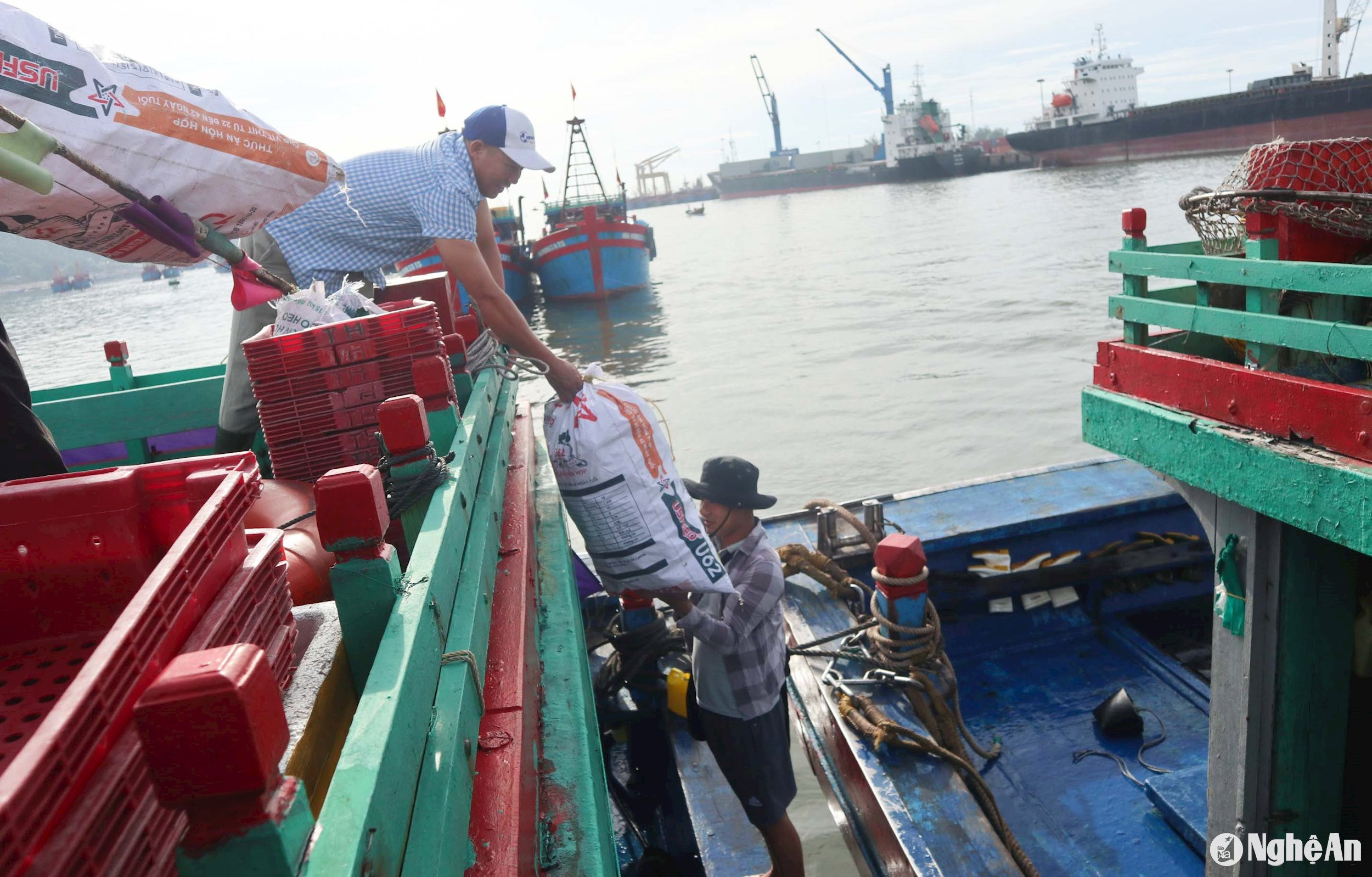
Garbage pollutes the marine environment, unbalances the marine ecosystem and reduces the habitat of seafood. This is also the reason why shrimp, fish and squid resources are no longer as abundant and rich as before.
Not to mention, there are times when the trash floats on the water surface, gets caught in the propeller, gets caught in the net, causing the net to tear, which is not only unsafe but also quite expensive to replace. This makes Mr. Thu very worried.
As a fishing boat owner, he thoroughly instructed the crew to classify garbage right on the boat. Accordingly, organic waste is put in a separate bin, while plastic waste (beer cans, soft drinks, plastic bags, plastic boxes, etc.) is collected in another bin.
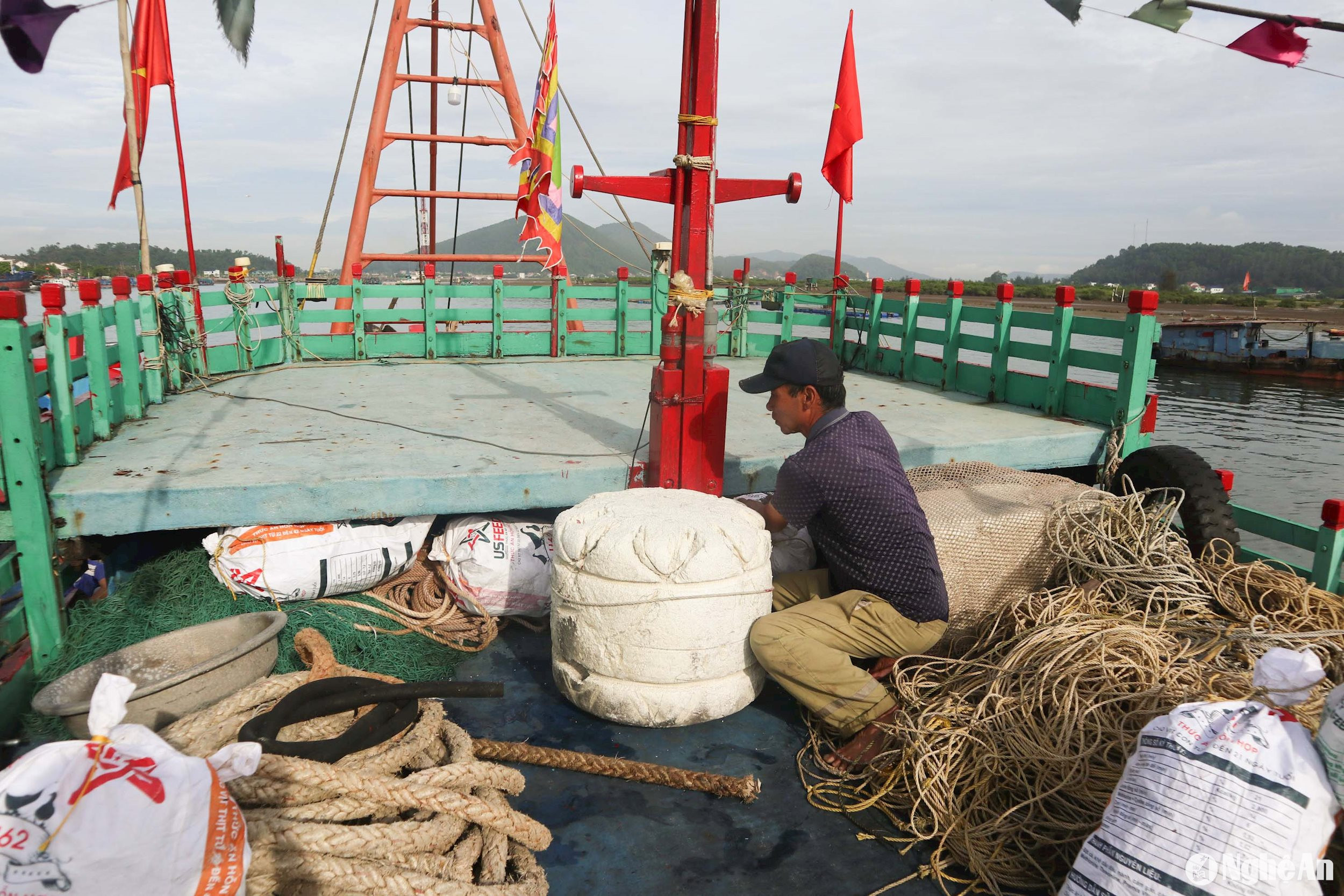
Then, gather and bring them back to shore. At first, it was difficult to change due to ingrained habits, but gradually, one person reminded the other, and together they did it, so it became a habit.
“Our two boats alone have 20 crew members. Each trip produces about 30 cans, 15-20 plastic bags, and 10 milk cartons. All of them are collected, put in mesh bags, and placed on top of the boat. After about 7-10 days, they are brought ashore, sold as scrap, and the proceeds are used to support crew members in difficulty,” said Mr. Thu.
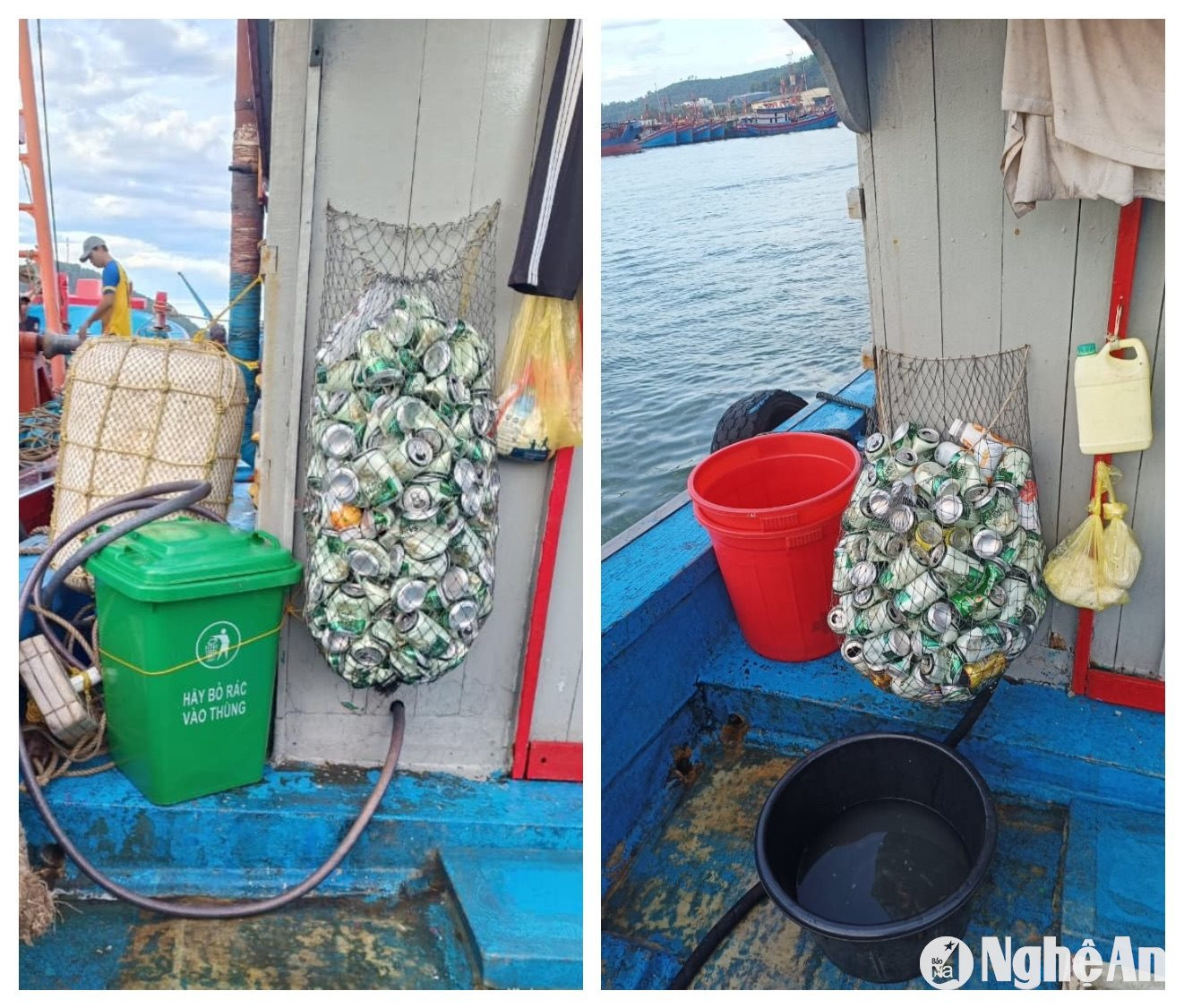
Mr. Thu’s fleet has been collecting scrap for the past 5 years. In addition to the economic value of about 4-5 million VND per year from selling scrap and giving gifts to disadvantaged crew members, the most important thing is that this captain has changed the habit of recycling waste and the way crew members behave towards the ocean.
Clean at sea, warm on shore
Nghi Thuy Ward, Cua Lo Town has 96 boats, of which 41 are offshore fishing boats. Seafood exploitation creates jobs for more than 600 local workers. Each trip out to sea can last 1-2 days, sometimes 3-4 days, the amount of waste from each boat with 10-15 crew members is not small.
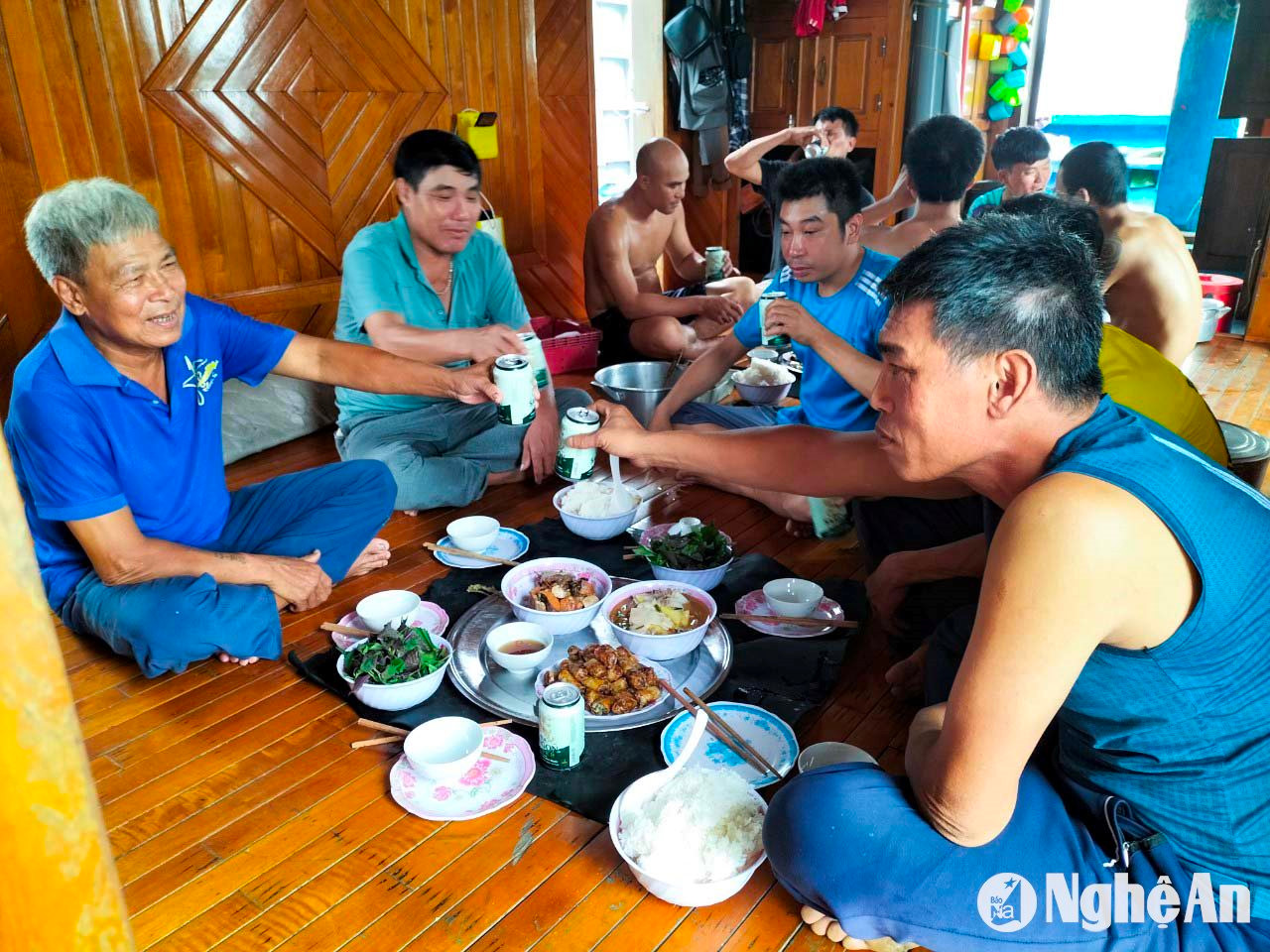
If everything is thrown into the sea, day after day, the problem of plastic waste and marine pollution will appear before our eyes. From the pioneering work of Mr. Phung Ba Thu, we realize that propagating and mobilizing fishermen to keep the marine environment clean by the practical act of collecting solid waste and bringing it to shore is something that "must be done immediately".
Therefore, the ward's fishing association coordinated with the Farmers' Association and the Women's Association of the ward to launch the model of "Collecting solid waste from the sea to the shore", implementing the movement "Keep scrap, do not discharge into the sea, exchange money on shore, support the poor".
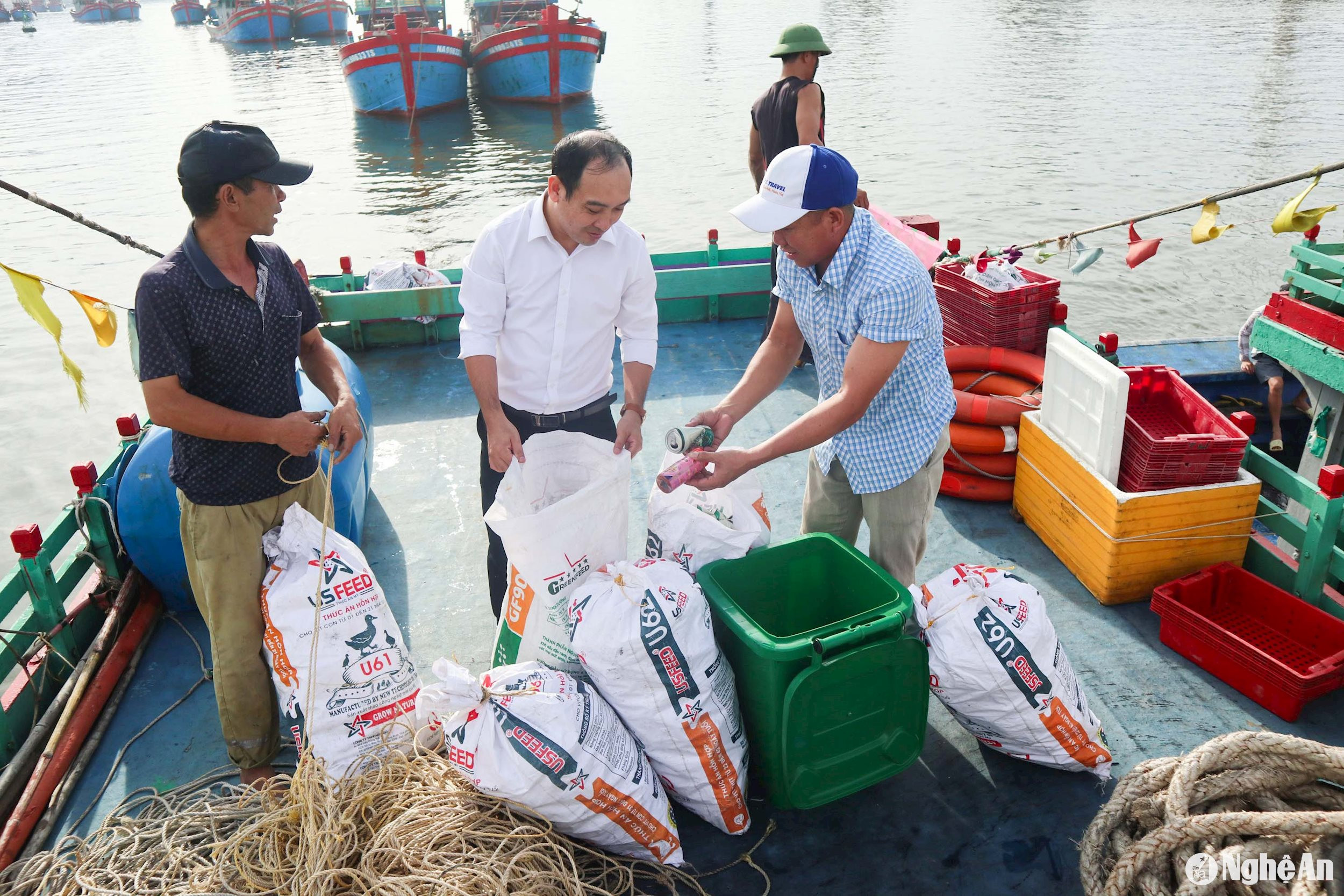
Accordingly, all ships classify waste and bring it to shore. “On average, a crew member uses 1 can of beer per day, so a fleet of 2 ships has 20 cans, not to mention the days when there is a big catch, a bumper trip, when the crew celebrates, the amount of cans is 4-5 times more.
If we just throw it into the sea, it will be very dangerous. Since we started bringing the trash ashore, on average, each ship can sell about 300,000-500,000 VND worth of scrap a week," said Phung Ba Hung, a crew member.
All scrap, after a fair amount is collected, will be gathered ashore and sold. The proceeds will be used to support sailors in need and to buy gifts for the poor in the ward.
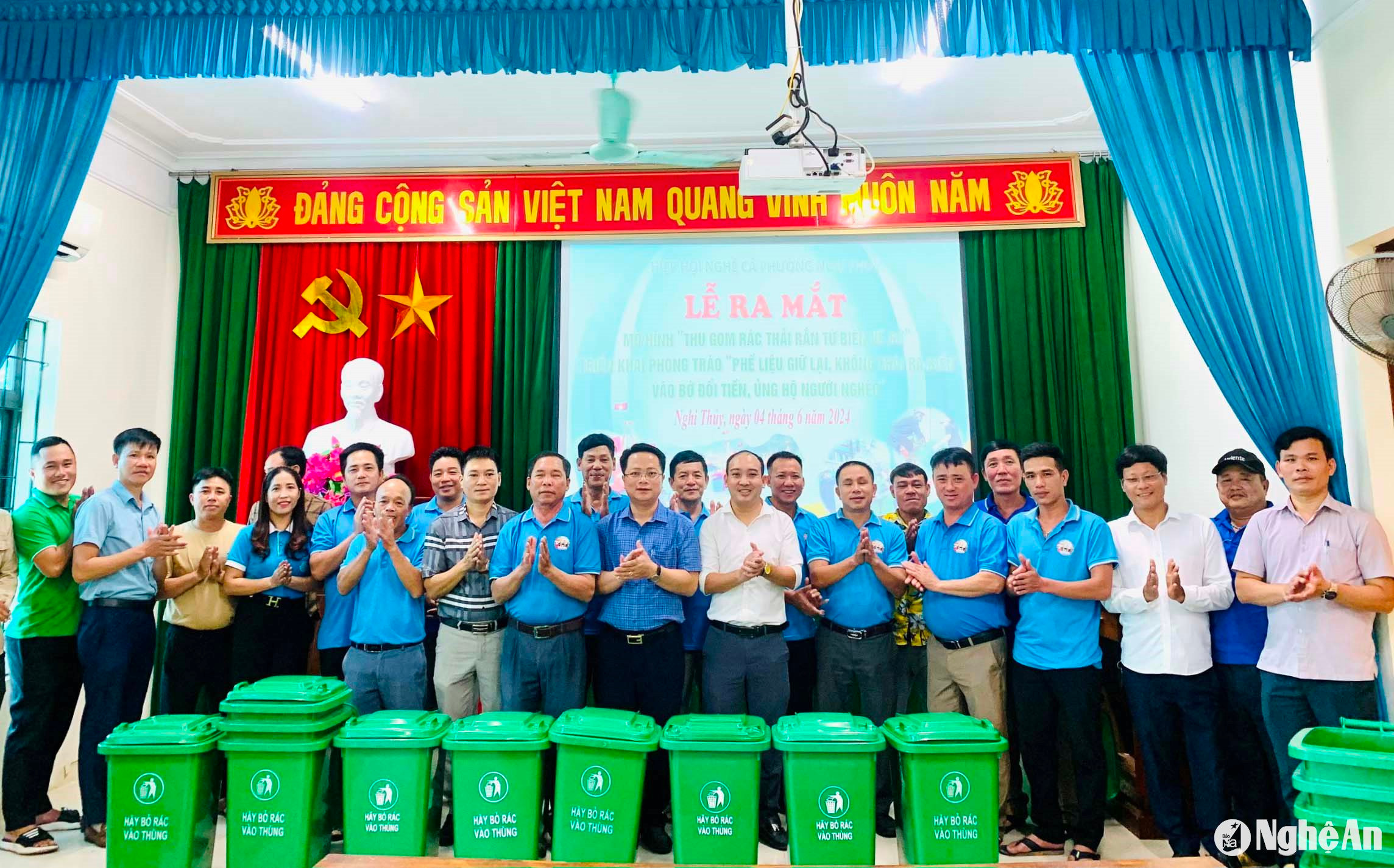
“If plastic waste is thoroughly collected from fishing boats, we will earn about 40 million VND each year. In addition to changing fishermen's habits, contributing to protecting the marine environment, and the revenue from scrap on fishing boats, we will have a significant source of funding to better implement social security work in the area. The locality is considering and evaluating to expand this model to 96 fishing boats in the area,” said Mr. Nguyen Tien Loi - Chairman of the Farmers' Association of Nghi Thuy Ward.
The ship docks, the holds full of fish and shrimp are brought ashore and sold to traders. The crew is busy cleaning the ship, the trash is gathered and dumped in the right place.
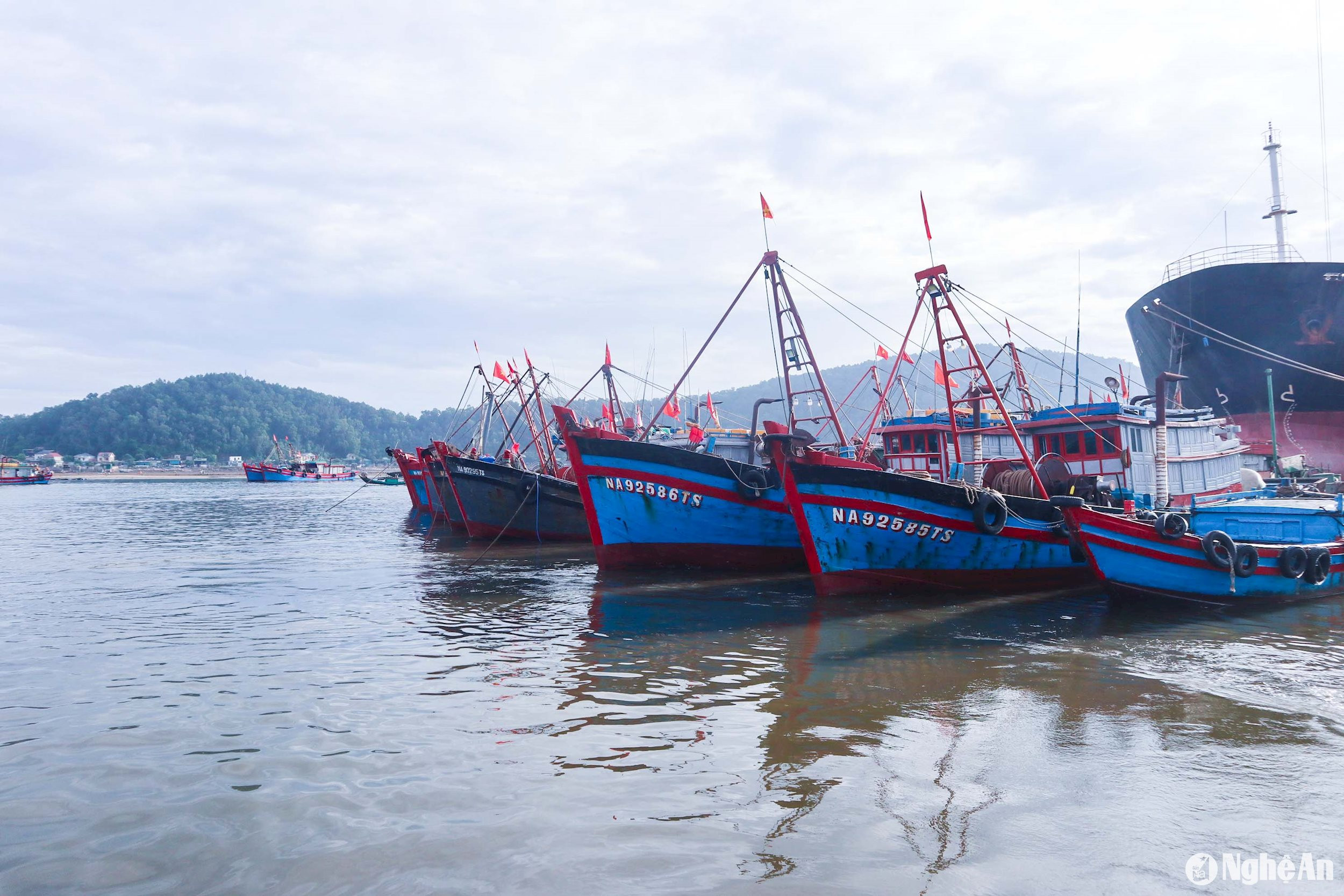
Mr. Nguyen Dac Quyen - a fisherman in Nghi Thuy ward said: "Now, whenever I see trash floating on the sea surface, I feel uncomfortable and have to find a net to scoop it up. Ropes, torn nets, and other types of waste are the same. Don't throw them away, collect them, sort them, and bring them to shore. Keeping the sea clean is also keeping a sustainable livelihood for fishermen like us."
